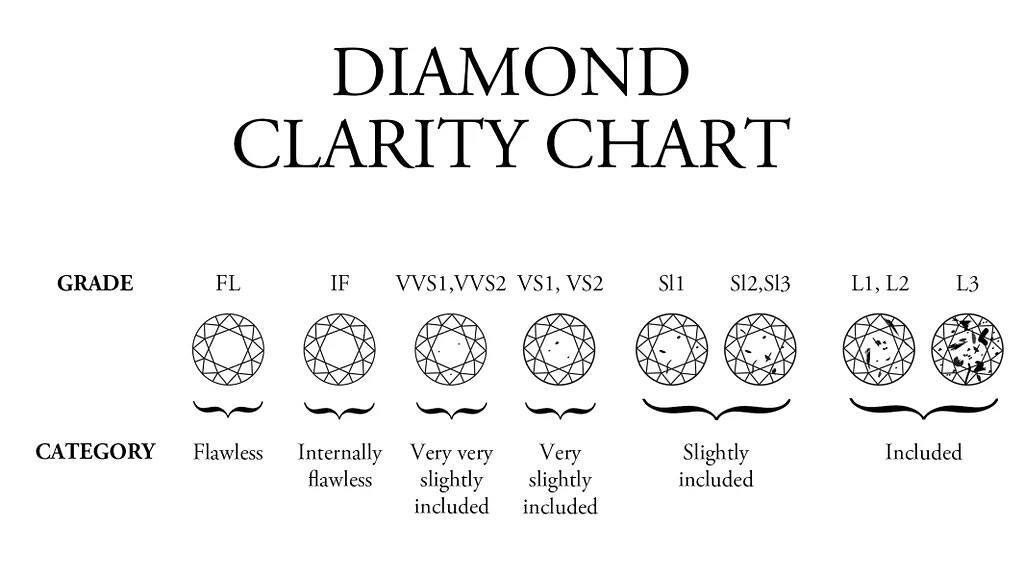When it comes to evaluating the quality of a diamond, clarity is one of the most important factors to consider. The clarity of a diamond refers to the presence of inclusions or blemishes within the stone. These imperfections can affect the brilliance and overall appearance of the diamond. The Gemological Institute of America (GIA) has established a diamond clarity chart that grades diamonds on a scale ranging from Flawless (FL) to Included (I).
The diamond clarity chart includes the following grades:
Diamond Clarity Chart And Color
- Flawless (FL)
- Internally Flawless (IF)
- Very Very Slightly Included (VVS1 and VVS2)
- Very Slightly Included (VS1 and VS2)
- Slightly Included (SI1 and SI2)
- Included (I1, I2, and I3)
Diamond Color
Another important factor to consider when choosing a diamond is its color. The color of a diamond is graded on a scale that ranges from D (colorless) to Z (light yellow or brown). The less color a diamond has, the more valuable and rare it is considered to be. Diamonds with a D grade are the most valuable and desirable, while diamonds with a lower grade may have visible yellow or brown tints.
It’s important to note that subtle differences in color can greatly affect the value and appearance of a diamond. When selecting a diamond, it’s recommended to choose a color grade that is as close to colorless as possible within your budget.
Conclusion
Understanding the diamond clarity chart and color grading system can help you make an informed decision when purchasing a diamond. By considering these factors along with other important aspects such as cut and carat weight, you can ensure that you are getting a high-quality diamond that fits your preferences and budget.
